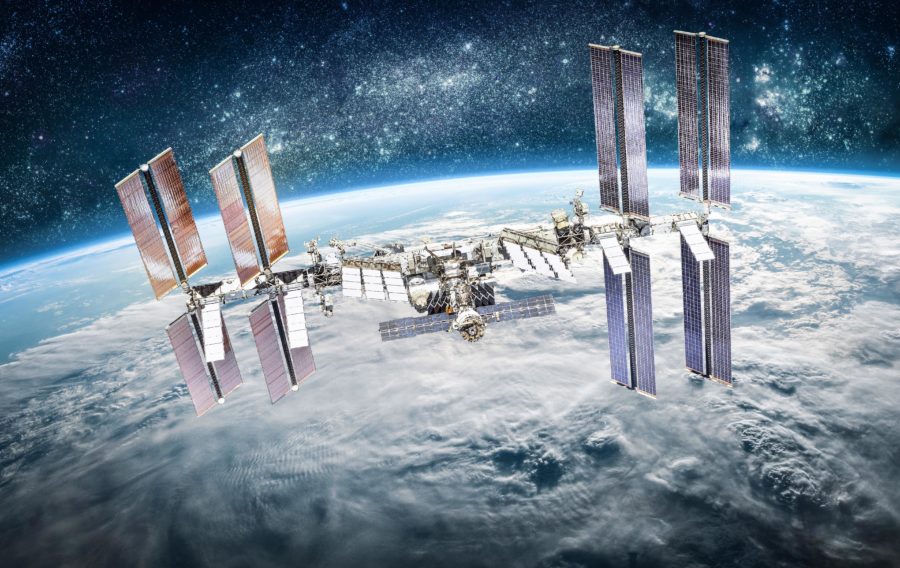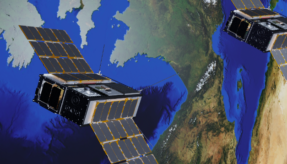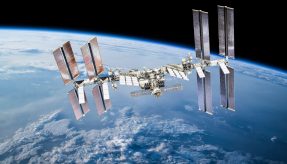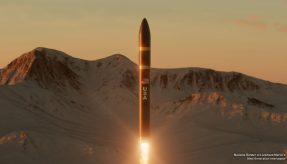
Space is an international domain that any government or enterprise is able to access. The space race characterised early advancements in the sector and arguably was responsible for the moon landing and Sputnik. Space still remains a domain for international rivalry and potential future battlegrounds, but in modern times it has become a realm of global collaboration.
As technology advances and more becomes possible, space agencies are turning their focus to science fiction ideas such as space tourism and colonies on the moon and Mars. Since NASA launched the International Space Station in 1998, 109 astronauts from 19 countries (including the UK, Japan, Russia, Canada, Belgium, Germany, and the Netherlands) have completed missions aboard. Private organisations have become more invested in space and often collaborate with government organisations on projects.
The 70th International Astronautical Congress in Washington DC was attended by organisations from Canada, UAE, Italy, Africa, and others. One area of focus was private space companies such as Space X, which is aiming for a moon launch within the next few years, ahead of NASA’s target. The European Space Agency (ESA) received a large share of attention due to a number of European startups engaging in the sector. Collaboration between government space agencies and start-ups was a theme, with NASA also expressing a desire to work with smaller firms.
During the conference, the International Astronautical Federation (IAF) welcomed 41 new members, bringing the count to 397. NASA and CNES signed an amendment to the Implementing Arrangement for their joint Surface Water and Ocean Topography (SWOT) mission, securing collaboration between the US and France. CNES also signed an agreement with the ESA to share interoperability facilities and ground control for spacecraft operations. This will form part of a European network of operations centres encouraging knowledge sharing, technical interchange, and joint action as well as facilitating exchanges between experts within the sector.
At the conference, representatives from different countries and organisations expressed their support for NASA’s moon programme. Japan has promised logistics services through its HTV-X cargo freighter and has plans to supply a habitation module for the Gateway lunar space station. Canada confirmed its robotic arm technology will also be part of the Gateway station and the ESA will seek funding from member states to contribute to the lunar station.
Climate change is a global issue and the fight against it has become an international effort. Data collected in space can be invaluable in tracking the health of the Earth. The Space Climate Observatory (SCO) links space agencies and scientist from countries across Europe, Asia, and South America as well as the UN Office for Outer Space Affairs (UNOOSA). The SCO aims to track tell-tale signs of damage such as weather events, soil quality, ocean levels, and ice. The SCO is partnered with the Global Climate Observing System (GCOS) and the Copernicus Climate Change Service. These partnerships aim to provide unified access to climate data collected in space. The program plays a role in the Sustainable Development Goals (SDGs) laid out in the Paris Agreement and ensures climate action is being taken seriously. The aim is for SCO to become a resource for all nations and for countries to develop their own national SCOs.
The SCO aims to compile Earth observation data, model outputs, spatial products, and national, regional, and local assets. It will use cross-disciplinary resources to monitor issues such as economic, social, and human impacts of climate change at a global and regional level. Technological advances such as artificial intelligence will assess data collected in space. Space technology is also being assessed as a way of generating green energy. Solar satellites can remain in the sunlight constantly and send the energy back to Earth. NASA has invested in this energy solution, with companies like Boeing expressing interest in the manufacture of solar satellites. China has also announced plans for the satellites, which could lead to their further domination of the solar power industry.
Next year marks the 20th anniversary of continuous human occupation of the International Space Station (ISS). A joint occupation with US and Russian Astronauts will mark the occasion, which will be completed just before the anniversary in November. The US government is debating extending the ISS programme to beyond 2030. A NASA official spoke to the Humans in Space Symposium in Dubai, confirming that ISS partners in Asia, Europe, and North America support the extension of the ISS lifespan. Previously, the station was due to be decommissioned in 2028. Partners in the station have now said they want work to continue for as long as possible.
The Dubai conference came after the first astronauts from the UAE were sent to space with Russian funding. There are more plans to send astronauts from the region into space. Attendees also discussed potential commercialisation of the ISS, something becoming more possible with technological advancements. NASA has expressed ambitions for the ‘industrialisation’ of low Earth orbit with companies like SpaceX and Boeing.
The ISS commercialisation plan was released by NASA earlier this year. It includes changes such as making a docking port for commercial modules and commercial use policy. This commercial initiative will include a pricing list for cargo and services in the station. Commercial activities will have to connect to a NASA mission, support NASA’s Lower Earth Orbit economy, or require low-gravity environments aboard the station. NASA will allow commercial transport to take private astronauts to the station and offer the use of station systems.
There could be other space stations in orbit in the near future, China and India have expressed interest in launching their own. These ambitions also include plans for launch vehicles and other forms of space flight. China has been developing its space station for a planned launch of the first components in 2020. The station is expected to be completed two years after the first launch. India is also planning a launch in 2022, celebrating 75 years since the end of British rule. The next major ambition for space exploration is Mars. The planet is arguably the focus of a 21st-century space race, with the US and China both aiming for Mars missions as well as private company SpaceX aiming for colonisation. NASA’s Mars rover could soon be joined by a Chinese counterpart.
SpaceX’s Mars colonisation has been the subject of a lot of media attention. The ESA’s ExoMars mission is focused around the robotic exploration of the planet. The Rosalind Franklin rover has been completed this year at the Airbus Defence and Space site in Stevenage, UK. The rover is set to be launched in 2021 and will explore the planet for signs of life as well as taking high-quality images. The ESA recently looked to NASA to solve problems with parachutes designed to assist the ExoMars lander. Tears in the parachute canopies appeared during tests, despite design adaptations.
The ESA worked with experts from the Jet Propulsion Laboratory, saying NASA’s greater experience with parachutes was needed. China is also planning to launch its own Mars rover next year, as is the UAE. The UK will play a role in the ESA’s Advanced Research in Telecommunications Systems (ARTES) as a leading investor and through British contract winners.
If you would like to join our community and read more articles like this then please click here.







